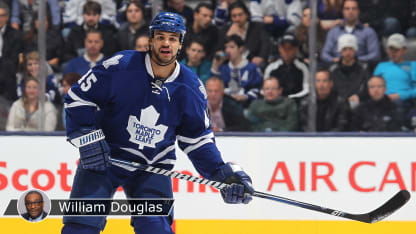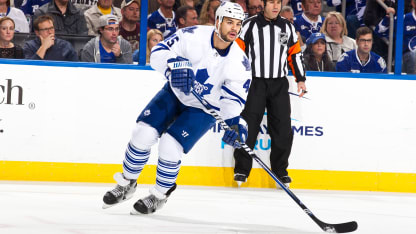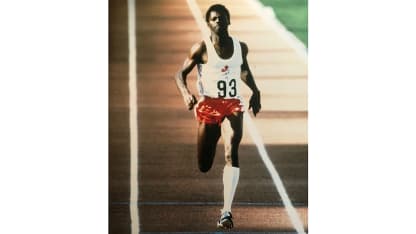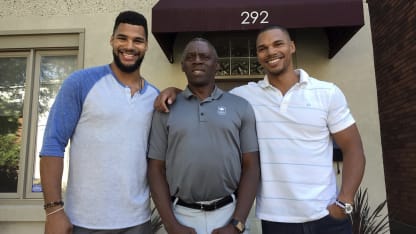"Prior to the unfortunate circumstances of 2020, no, I definitely did not see myself being back with the Leafs or anywhere in hockey so soon and in such an impactful role," he said.
Toronto president Brendan Shanahan said Fraser's mission is to work "with our players and within our organization and community to help hockey a more inclusive and welcoming place for all."
Fraser said his main goal is to normalize conversations around race, diversity, equity and inclusion so that they're not "big and scary" topics that have people walking on eggshells.
"Why it's scary is topics in and around racism or prejudice have never been easy," he said. "What I'm coming to realize is that a lot of fear in discussing the topics is the fear from not wanting to say the wrong thing, of not wanting to look silly, or coming across as insensitive."
Or worry about the implications of speaking out or being perceived as different. Fraser, whose grandfather immigrated from Kingston, Jamaica, to Kingston, Ontario, in 1954, said he encountered racism and discrimination during his playing career and resorted to a form of self-editing culturally to conform with mostly white teammates, coaches and management and to advance in his career.
"The feeling of having to edit yourself, that was something I was taught from the time I entered junior hockey, to be honest," he said, "that in order for me to fit, in order for me to be potentially drafted, to get the call up, to get signed, to be in the lineup and not get sent down, to play more minutes.
"I knew if I leaned too heavily into my ethnic culture, I would make myself too unfamiliar to the people making those decisions and therefore potentially affect the potential for me to have those opportunities."
Fraser said being a former NHL player and sharing his story has helped make current Toronto players more comfortable in approaching him about issues concerning race, diversity and inclusion.
He said he was impressed when Toronto players decided to wear Black Lives Matter T-shirts as a symbol of support in the aftermath of Floyd's death when they held their first team workout during Phase 3 of the NHL's Return to Play Plan in July.
Their actions prompted Fraser to strike up a conversation with Maple Leafs general manager Kyle Dubas.
"He (Dubas) is a guy who has used his platform in the past to support different marginalized groups," Fraser said. "I was confident and hopeful that in suggesting this to him and speaking to him on what I felt was the importance of a role such as this in hockey, and especially with the Maple Leafs, it was met with a very keen understanding of the issues and topic at hand."
Focusing on diversity and inclusion within hockey has become a Fraser family passion. His father, Hugh Fraser, a retired provincial court judge who competed in the 200 meters at the 1976 Montreal Olympics, served on Hockey Canada's Equity, Diversity and Inclusion Task Team in 2020.





















